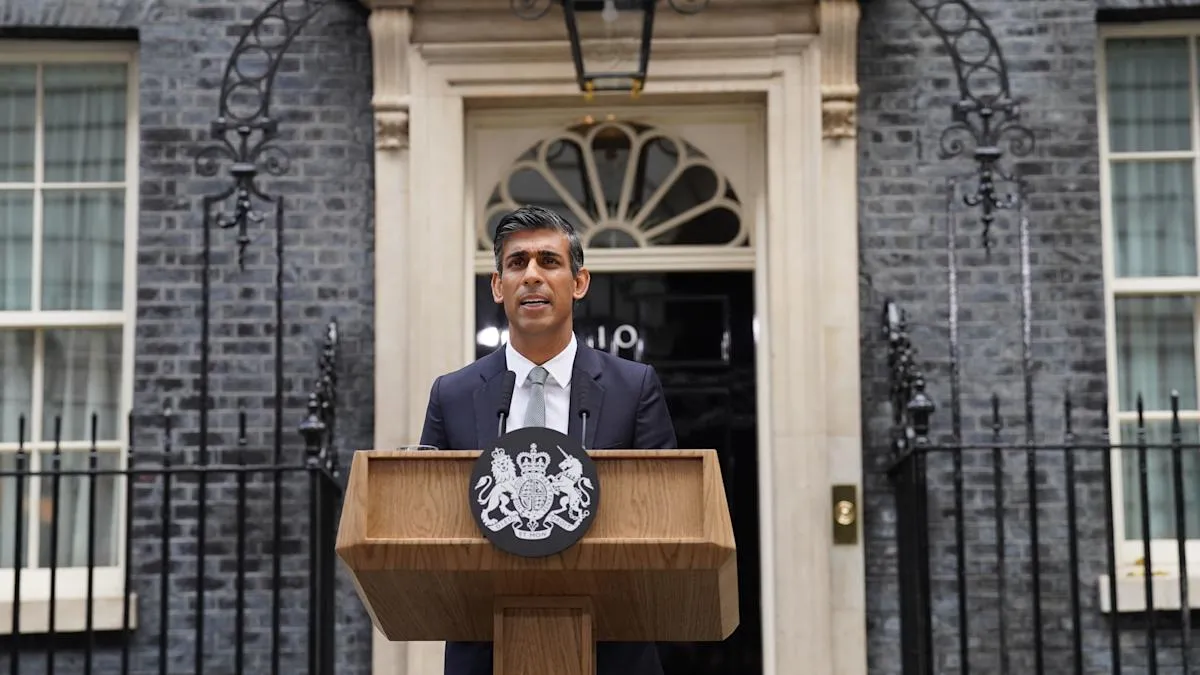Politics
PM Sunak Faces Internal Party Pressure Ahead of 2026 Elections

Prime Minister Rishi Sunak is navigating one of the most politically volatile moments of his tenure as tensions rise within the Conservative Party ahead of the 2026 general elections. Party divisions over economic management, immigration policy, and the government’s overall direction have reignited speculation about his leadership stability. As the United Kingdom approaches another pivotal election, Sunak must strike a careful balance between maintaining party unity and demonstrating to voters that his administration has a coherent plan to deliver growth and stability.
Growing Divisions Within the Conservative Party
Senior figures in the Conservative Party have privately voiced frustration over what they perceive as a lack of clear messaging on key issues. Some MPs are pushing for aggressive tax cuts to boost business confidence and energize the economy, while others argue for fiscal restraint to maintain market credibility. These ideological tensions mirror the challenges that have haunted the party since the Brexit era, when internal disagreements often overshadowed policy implementation.
The latest pressure on the Prime Minister has been amplified by opinion polls showing a decline in Conservative support, particularly in traditionally strong regions. Voters remain concerned about the rising cost of living, the state of the National Health Service, and persistent housing shortages. These issues have provided ammunition for opposition parties, who accuse the government of losing touch with everyday realities.
Cabinet insiders have revealed growing concern that constant internal debate could weaken the party’s public image at a crucial time. Many believe that unity must be restored quickly if the Conservatives are to present themselves as a credible governing force in the 2026 elections. Political analysts suggest that while no formal leadership challenge has yet emerged, the increasing discontent serves as an early warning for the Prime Minister to consolidate his authority before campaigning begins in earnest.
Sunak’s Strategy for Reclaiming Confidence
In response to growing unease, Rishi Sunak has intensified his efforts to communicate a vision of economic stability and pragmatic governance. His speeches in recent weeks have emphasized fiscal discipline, investment in education, and innovation-driven growth. The government’s economic plan focuses on reducing inflation, encouraging small business expansion, and accelerating the shift to renewable energy. By presenting measurable progress on these fronts, Sunak hopes to counter criticism and convince both the public and his colleagues that the government remains firmly on course.
To rebuild confidence within the party, Sunak has sought to strengthen relationships with backbench MPs and regional leaders. He has encouraged open dialogue on contentious issues such as housing reform and immigration while insisting that unity is vital to securing electoral success. His recent meetings with party members in northern constituencies were designed to reassure them that the government remains committed to the levelling-up agenda, a key promise that has yet to fully materialize.
Sunak’s leadership style has often been described as cautious yet methodical, emphasizing evidence-based decision-making over political theatre. While some critics within his party argue that this approach lacks charisma, supporters contend that his composure and professionalism distinguish him from previous leaders who struggled to maintain control during turbulent periods. As the election draws nearer, his ability to project calm competence could prove to be an asset in an increasingly polarized political climate.
The Opposition and Public Perception
The Labour Party, led by Keir Starmer, has taken advantage of Conservative divisions by framing itself as the party of pragmatic change. Labour has promised to deliver economic growth through public investment, environmental reform, and modernization of public services. Recent polls indicate that Labour holds a steady lead, largely due to perceptions that the Conservatives have been in power too long and have failed to resolve core issues such as the cost of living crisis.
Despite these challenges, Sunak still benefits from his reputation for competence in handling economic matters. His previous experience as Chancellor during the pandemic earned him credibility for managing complex financial systems under pressure. However, his government now faces the difficult task of translating macroeconomic stability into tangible improvements for ordinary citizens. Success in this area will likely determine whether the Conservatives can narrow the gap before the election campaign begins.
Internationally, Sunak’s pragmatic approach has maintained positive relations with both European and American counterparts. His focus on strengthening trade relations and technological collaboration has helped preserve Britain’s influence abroad, but domestic voters remain more concerned with immediate economic realities than foreign diplomacy. Political observers note that while his international standing remains strong, domestic politics will ultimately define his fate.
Conclusion
As the 2026 general elections approach, Rishi Sunak faces the formidable challenge of leading a divided party through one of the most critical political moments in recent British history. Restoring unity within the Conservatives while addressing voter frustration will require strategic discipline, communication clarity, and visible policy results. The Prime Minister’s success or failure will depend on whether he can transform cautious optimism into renewed confidence, both within Parliament and across the nation.
While some in his party question his long-term leadership viability, others argue that steady hands are needed in uncertain times. Sunak’s immediate priority will be demonstrating that his government has the capability and conviction to steer the country through economic and political turbulence. The months ahead will test his resilience, his strategy, and his ability to unite a party whose internal divisions threaten to overshadow its governing agenda.






















